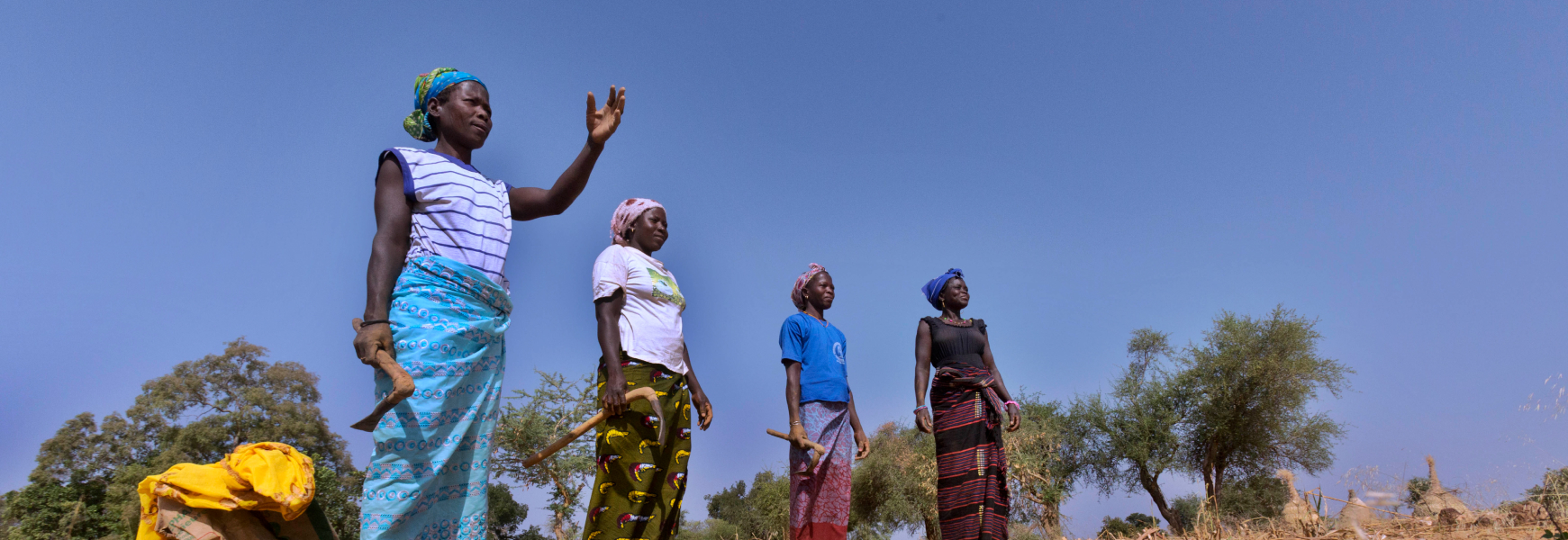Transforming Food Systems From the Ground Up: Our Theory of Change
For over 13,000 years, farming has been about people constantly innovating and working with nature to create reliable ways to grow food and enhance well-being. But the past 200 years have seen a dramatic shift towards industrial agriculture. Heavy reliance on fossil fuels and mechanization became the norm, prioritizing quick growth over protecting natural resources.
Today, a few large corporations dominate the supply of farming inputs such as chemical fertilizers, pesticides and patented seeds, shaping markets and policies to serve their interests.
This shift has led to short-term gains for a select few while displacing traditional farming knowledge and practices and exacerbating climate change. It has resulted in disastrous consequences for farmers, now trapped in a vicious cycle of degraded and unproductive land, rising debt, food insecurity, and erosion of local cultures.
Faced with these challenges, we have embraced an approach that values farmers’ inherent ability to innovate and transform food systems from the ground up: agroecology.
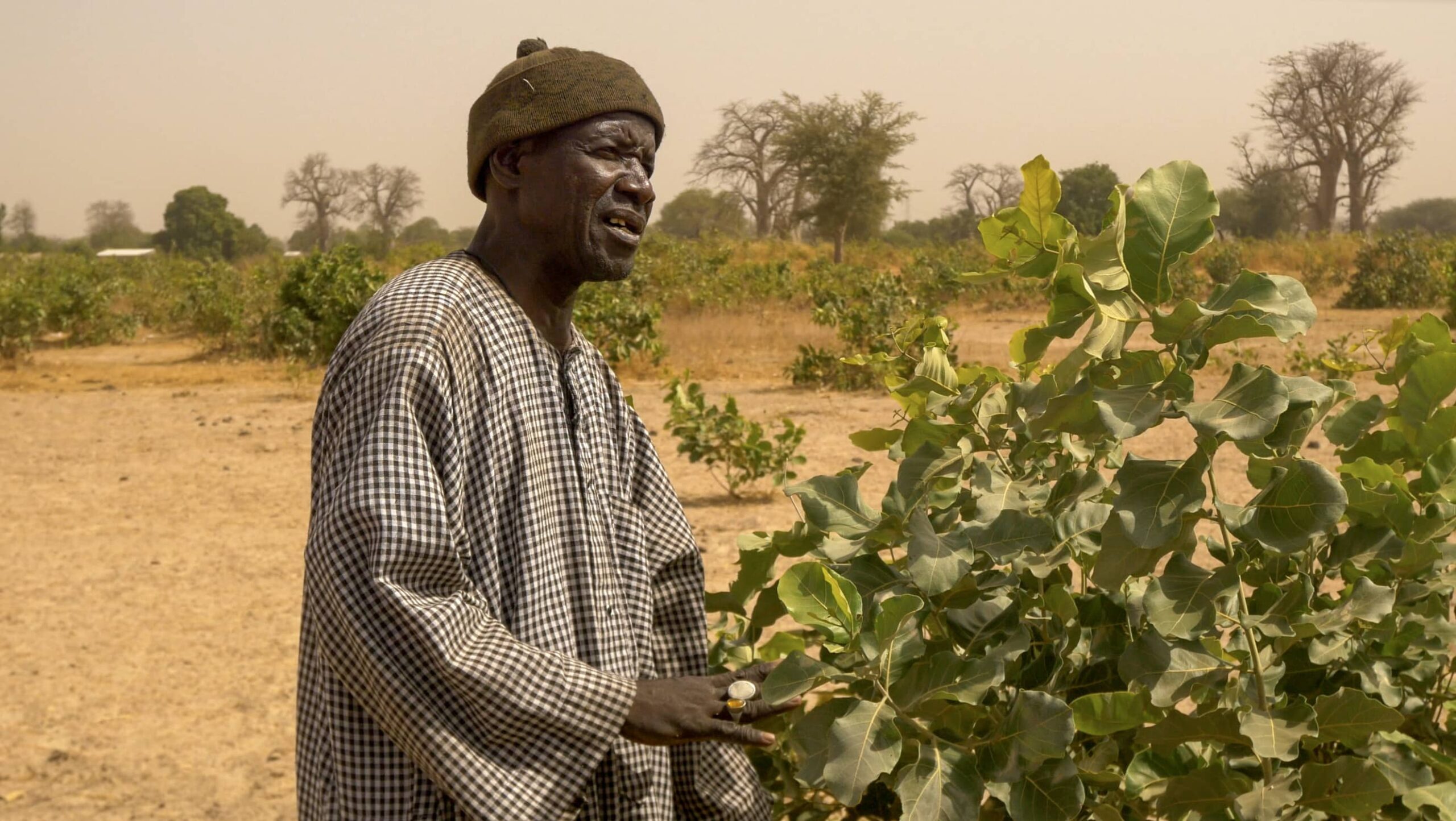
Farming and food systems shaped by communities
Agroecology is, by its nature, a vast and global human intelligence network. It is distributed across the entire world’s diverse ecosystems. At its core, agroecology is about food sovereignty, enabling localized production, control over seed, land, and trees, and localized markets and consumption. It is pro-people, pro-environment, pro-appropriate technological innovation, pro-local jobs, pro-ground-up economic development, and pro-democratization of knowledge, power, and resources.
At Groundswell International, we define agroecology as an approach that centers on the agency of smallholder and Indigenous communities to create farming solutions that work with nature instead of against it.
When farmers lead in assessing their agricultural constraints, experimenting to find alternatives, and spreading what works, the practices they develop are cost-beneficial and relevant to their needs, context, and culture. Rather than using technical or academic language, most farmers we work with understand and describe these practices in their native languages and terms.
Agroecology is, therefore, as much a process of social innovation – placing farmers at the center of the creation of farming practices by combining traditional and ‘scientific’ knowledge – as it is any set of technologies. Ground-up innovation replaces top-down policies and programs and reduces dependency on external and chemical inputs.
At Groundswell International, we define agroecology as an approach that centers on the agency of smallholder and Indigenous communities to create farming solutions that work with nature instead of against it.
Agroecology as a practice, a science, a movement
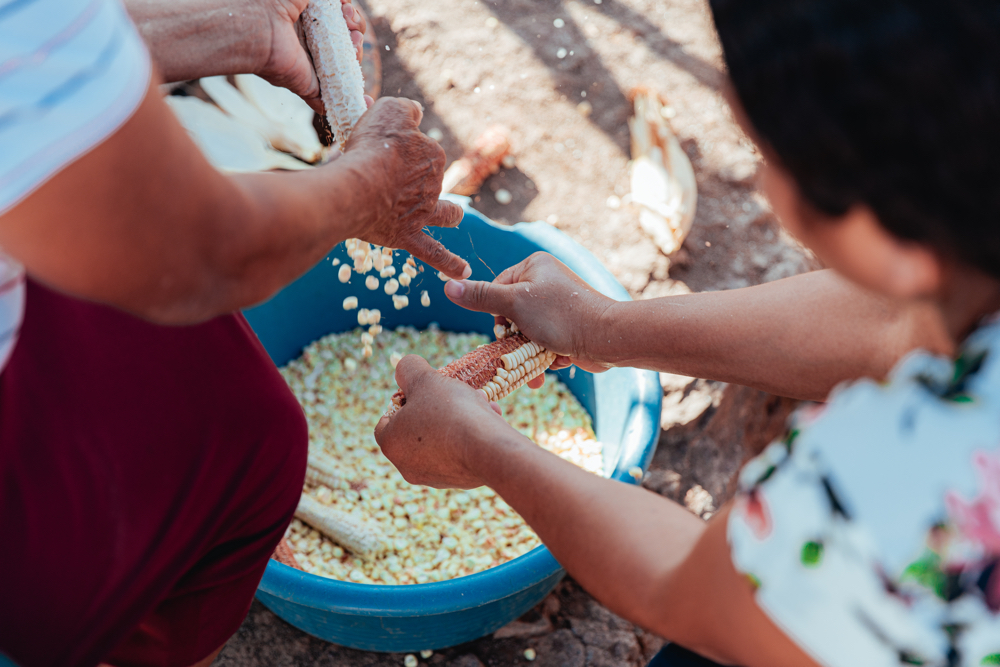
As a science, agroecology investigates how ecological processes can be applied to the design of farming systems. It studies the holistic interactions between plants, animals, humans, and the environment, seeking to develop regenerative and resilient farming methods.
As a practice, agroecology relies on smallholder farmers’ traditional knowledge and ability to innovate. Using local resources and organic inputs such as natural fertilizers, farmers employ techniques like crop rotation, intercropping, and composting to regenerate the soil and build resilient systems that benefit the environment, society, and local economies.
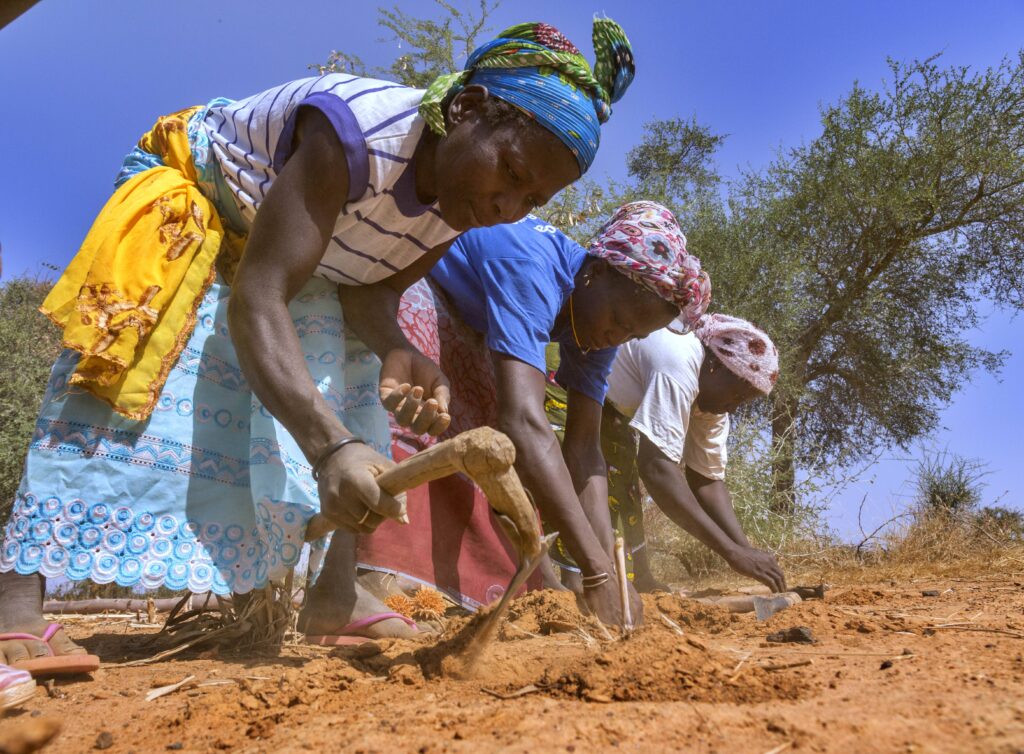
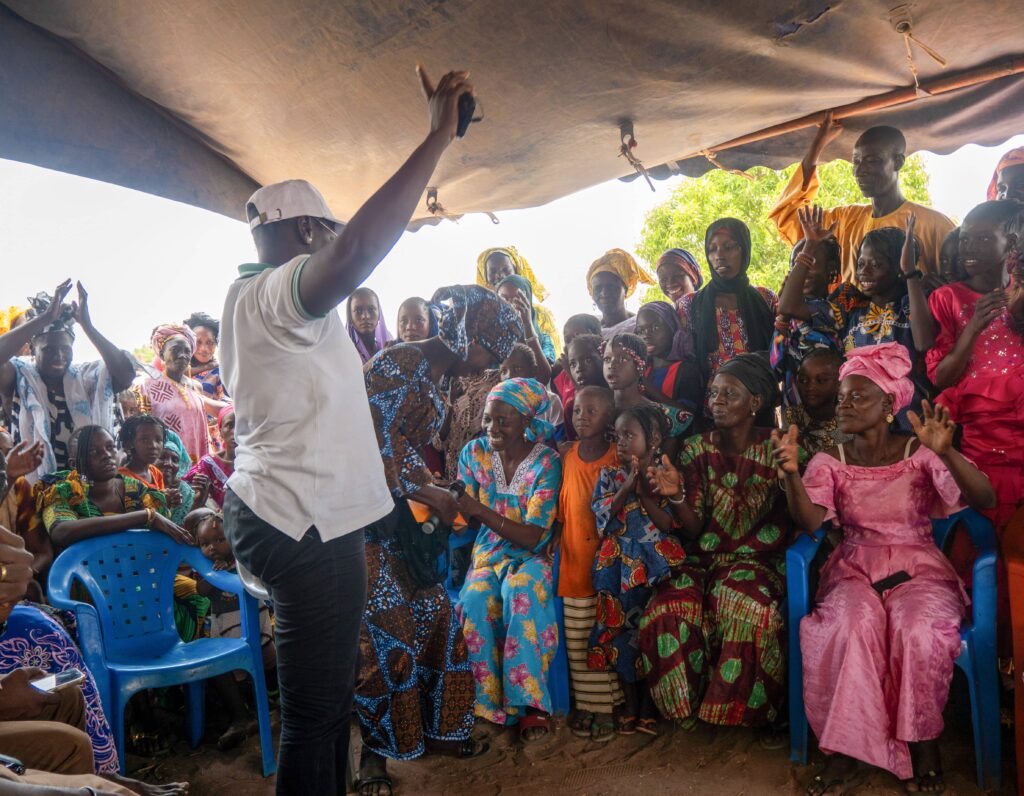
As a movement, agroecology advocates for food sovereignty, short local supply chains, and small-scale farmers’ rights. It promotes the use of local, diverse indigenous seeds and healthy, nutritious diets. It challenges dominant industrial agriculture models and gives power back to smallholder farmers.
Transforming food systems from the bottom-up: a gradual transition
This graphic explains how we can transition from conventional, industrial agriculture to a more sustainable and equitable food system grounded in agroecological principles. These principles guide the design and management of agroecosystems to ensure they are environmentally sound, socially just, and economically viable.

Rewriting the narrative
Groundswell International is committed to people-centered, ground-up, and positive social change. That begins with strengthening and supporting the capacity, dignity, and agency of smallholder farming families, communities, and organizations to improve their lives.
We aspire for a world where sustainable, healthy, nourishing, and just food and farming systems are accessible to all people and beneficial for our planet. We’ve defined the following Theory of Change to achieve this vision:
If
- Groups of farmers experiment with agroecology to farm in more productive and regenerative ways
- Programs and policies prioritize women’s agency, leadership and gender equity
- Successful farmers (women, men, and youth) scale agroecology through farmer-to-farmer networks and solid community-based organizations
- Farmers and consumers connect through local market arrangements, incentivizing agroecological farming and providing healthy, diverse food to local communities
- Farmers, consumers, and civil society groups collaborate for policies, governance, narratives and financing mechanisms that support agroecology and sustainable local food economies
- And we collaborate across borders to strengthen these local initiatives, accelerate learning between them, and amplify their voices for broader systems change…
Then
- Farming families and communities will boost food production, increase income, and build resilience.
- People will have more access to a diversity of locally produced and nutritious food
- Farmers will improve soil health, water quality and biodiversity
- Women and other marginalized people will have a greater voice and power to provide for their families and participate in decision-making processes
- And, the movement to create healthier farming and food systems will gain momentum and spread globally

Our five core areas of work – farmer-to-farmer agroecology, women and youth empowerment, healthy diverse diets, local food markets and enabling policies – drive this intended change.
Scaling real solutions across territories: how our global action-learning network functions
Within the Groundswell International network structure, different actors have complementary roles and responsibilities in implementing these programs:
Smallholder and Indigenous Farmer Households and Communities lead ground-up social change to improve their lives in lasting ways by:
- Managing community-based organizations (CBOs) and networks.
- Carrying out on-farm experimentation and farmer-to-farmer spread of effective practices.
- Mobilizing and managing local assets (e.g., savings & credit funds, seed and grain banks, etc.)
- Strengthen local food markets.
Member NGOs of our network are the national partners who work directly with communities and strengthen their capacities by:
- Supporting participatory needs assessment and program design.
- Facilitating training, monitoring and evaluation
- Engaging in action-learning with other Groundswell staff, members, and allies, to synthesize lessons and improve strategies.
- Building collaboration with national and regional allies for wider systems change.
Groundswell International staff work with partner organizations to:
- Co-design programs and develop effective frameworks to manage them.
- Mobilize necessary financial and human resources to implement them.
- Facilitating action-learning across members and allies; synthesize, document, and disseminate results and lessons.
- Amplifying our collective voices for broader systems change.
Our Board of Directors ensures effective governance, acts as ambassadors for Groundswell, and provides support in fulfillment of our mission.
Supporters, donors, and allies (like you!) provide key resources, support, and collaboration to achieve these goals together.
In 2023, our collective efforts strengthened over 1,440 community-based organizations in 11 countries, benefitting over a million people.
You can help us scale agroecology to benefit even more communities. Here’s how you can get involved.

